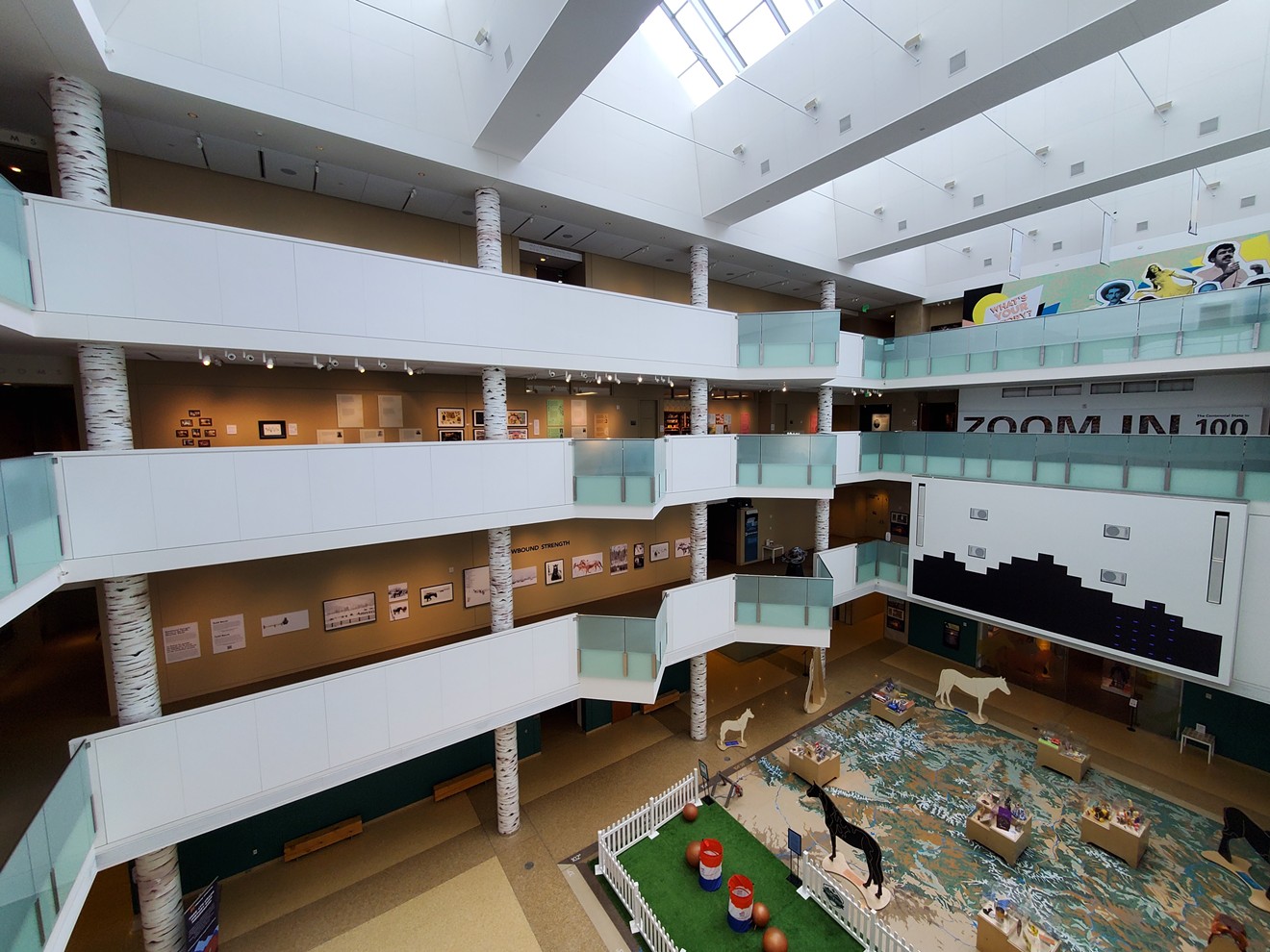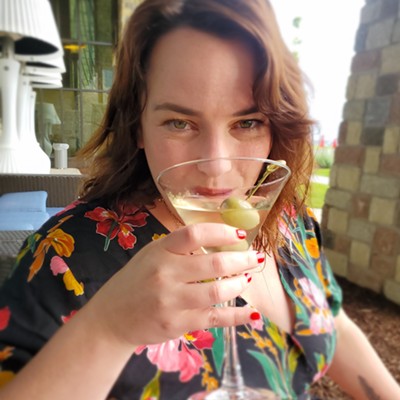"The through line that connects all of us, including the Asian diaspora in Colorado, is food," says Courtney Ozaki, founder and creative producer of the Japanese Arts Network and curator of a new exhibit at the History Colorado Center called Rice & Resilience, which she envisioned as "an opportunity for different artists to respond to what their relationships with food are."
Ozaki had previously collaborated with Jeremy Morton, History Colorado's public engagement manager; part of his job is to activate the mezzanine levels of the center. They decided they wanted to work together on something that would highlight the American Asian and Pacific Islander community,
Rice & Resilience is the result of their efforts; it will be on display on the third-floor mezzanine through at least April of next year. The exhibit includes individual stories and artwork by AAPI community members collected by Ozaki over the course of about a year. "We identified the main areas where food was most important, not only to the community, but their contributions to Colorado," she says.
Topics explored include food as livelihood, from farms to grocery stores, including Pacific Mercantile Company, the Sakura Square staple that celebrated its 75th anniversary in 2020. The exhibit also dives into the experience of AAPI-owned restaurants, which were hit especially hard by the pandemic. "We wanted to make sure to lift up how restaurants are meaningful to our community and give insight into what it was like to grow up in restaurants as AAPI-identifying individuals," Ozaki notes.
One section of the exhibit, called Lunch Box Moments, invites visitors to share their experiences "feeling shamed or othered" because of their cultural foods — either as a child or an adult, Ozaki says. Another installation from Ozaki herself is an interactive pantry collection that highlights common ingredients found in AAPI home kitchens.
"We want people to think about it from many different angles," Ozaki explains. "Food is such a prevalent part of our culture and how we pass down memories. It's how we celebrate and share joy, plus it's our livelihood."
Ozaki found the individual stories from people of many different backgrounds, from Japanese and Chinese to Taiwanese and Korean, particularly impactful because "a lot of people really shared parts of themselves that they usually don't share," she says, which helped all the contributors better understand each other. Many of them "do so much work together [in the AAPI community], but don't usually get to share those more intimate moments," she continues.
Through Rice & Resilience, Ozaki was able to create something that not only looks at the history of Asian food culture in this state, but also how that translates to the present day. "A lot of people don't realize the contributions that the AAPI community has made in Colorado," she says. "It's easy for us to take it for granted. A lot of people my age and younger are starting to want to be more connected to their lineage now, and to celebrate their cultures. One of the easiest pathways to do that is through food."
History Colorado Center is located at 1200 Broadway and is open from 10 a.m. to 5 p.m. daily. For more information, visit historycolorado.org.
[
{
"name": "Air - MediumRectangle - Inline Content - Mobile Display Size",
"component": "12017618",
"insertPoint": "2",
"requiredCountToDisplay": "2"
},{
"name": "Editor Picks",
"component": "17242653",
"insertPoint": "4",
"requiredCountToDisplay": "1"
},{
"name": "Inline Links",
"component": "18838239",
"insertPoint": "8th",
"startingPoint": 8,
"requiredCountToDisplay": "7",
"maxInsertions": 25
},{
"name": "Air - MediumRectangle - Combo - Inline Content",
"component": "17261320",
"insertPoint": "8th",
"startingPoint": 8,
"requiredCountToDisplay": "7",
"maxInsertions": 25
},{
"name": "Inline Links",
"component": "18838239",
"insertPoint": "8th",
"startingPoint": 12,
"requiredCountToDisplay": "11",
"maxInsertions": 25
},{
"name": "Air - Leaderboard Tower - Combo - Inline Content",
"component": "17261321",
"insertPoint": "8th",
"startingPoint": 12,
"requiredCountToDisplay": "11",
"maxInsertions": 25
}
]














